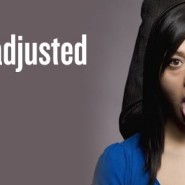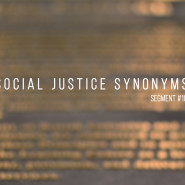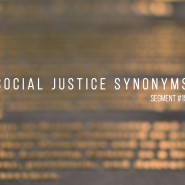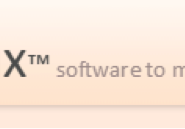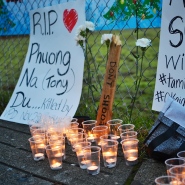Category Archives: Disability Justice & Mental Health
Event Preview: “maladjusted”
“maladjusted” explores the mechanization of the mental health system with a goal of creating a discussion on how to move towards more human-centred care. This interactive forum theatre is created and performed by patients and caregivers. Organized by Theatre for Living at the Firehall Arts Centre, the performance is going on until March 28. Please […]
Meet the Editors: Sarah K.
I centre my newness to ‘anti-o’ work in this introduction because the critical work done in academic spaces can often be or seem daunting or inaccessible. It doesn’t have to be, and I hope The Talon can be – among other things – an entry point to critical perspectives on a multitude of subjects for you, as it is has been and continues to be for me.
“You’ll find a boyfriend once you lose some weight”
Trigger warning for disordered eating, fatphobia, body shaming, weight loss and discussion of diets. If you are struggling with an eating disorder, the National Eating Disorder Information Centre has a toll-free helpline that you can access by calling 1-(866)-633-4220. “The more beautiful we are, the more admired our appearance, the closer we approach the dream […]
Social Justice Synonyms #18: “Crippled” and “Paralyzed”
Generally, using the words “crippled” and “paralyzed” to refer to people with disabilities is impolite. However, they’re still being used to describe impairment, whether it’s in the media, daily conversations, or pop culture. It is not uncommon to encounter a news headline that reads something along the lines of, “Basketball team suffers crippling loss at […]
Social Justice Synonyms #15: “Anorexic” and “Bulimic”
Colloquial misappropriations likening these disorders to weight loss strategies or bad habits, as well as associating them with celebrities and tabloid stories, serves to belittle these disorders and shame those living with them. This can cause persons living with an eating disorder to feel afraid to speak out for fear of being misunderstood, or for fear that they will be shamed and referred to as “crazy.”
Get the most out of technology: a stress and self-care guide for the new year
As the term progresses, it gets harder and harder to stay on top of things while taking care of yourself. We at The Talon would like to remind our readers to put your mental, emotional, and physical well-being first. Know your own body and know that it is not worth sacrificing your life for a […]
Sexual Assault Awareness Month Launches at UBC
January is Sexual Assault Awareness Month (SAAM) at UBC, an initiative spearheaded by the University and the AMS. Access & Diversity and the AMS Sexual Assault Support Centre (SASC) are taking the lead in organizing and running events during SAAM, in partnership with many other campus organizations. All throughout January, members of the UBC community […]
Photo Essay: Vigil for Phuong Na (Tony) Du
On November 22, at the intersection of Knight Street and 41st Avenue in East Vancouver, Phuong Na (Tony) Du was shot dead by Vancouver police. He was unarmed and had been tapping a fence with a piece of wood. Witnesses say that he was shot within a minute of the police arriving on the scene, sparking the hashtag […]
The Legacy of December 6 at UBC: Moving Forward
Trigger warnings: Misogynistic Violence, Murder, Suicide, Mental Illness, Slurs Note: This is being published today, instead of actually on Dec 6, as to leave time for reflection, and concentrate on moving forward. Twenty-five years ago, as of December 6, 14 young women, most of them engineering students, were killed. Their names were Genevieve Bergeron, Helene […]
Social Justice Synonyms #11: “OCD” and “Bipolar”
Although persons living with OCD and bipolar disorder are often high functioning individuals, many have at some point felt debilitated by their diseases, or have encountered feelings of distress, depression, and alienation. In contrast, a person without bipolar disorder who has a mood swing, or enjoys being punctual, does not have to live with these same symptoms. This type of misappropriation can prevent someone living with mental illness from speaking up or reaching out for help since they might fear not being taken seriously or being met with ignorance.
